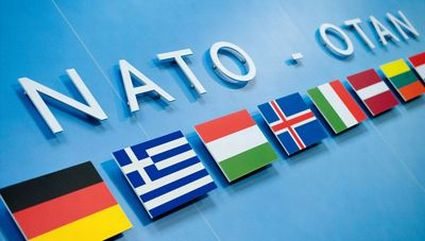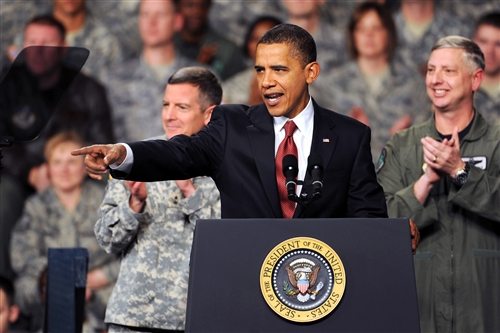Russia is trying to test NATO’s mettle and members of the transatlantic alliance must bolster military spending in the face of Moscow’s challenge, US Defense Secretary Chuck Hagel warned Friday.
The 28 members of NATO have responded to Russia’s intervention in Ukraine with “resolve,” Hagel said, “but over the long term, we should expect Russia to test our alliance’s purpose, stamina and commitment.”
Russia’s annexation of Crimea and its backing of separatists in eastern Ukraine “has reminded NATO of its founding purpose,” he said.
After the Cold War, the alliance had looked to forge a partnership with its old adversary.
But after Moscow’s moves in Ukraine, “NATO must stand ready to revisit the basic principles underlying its relationship with Russia,” he said.
Hagel’s press secretary, Rear Admiral John Kirby, declined to describe Russia as an “enemy” of the United States.
NATO’s deputy secretary general, US diplomat Alexander Vershbow, however said Thursday that Moscow had be to seen as “more of an adversary than a partner.”
Crucial choice
In his speech, Hagel told an audience at the Wilson Center think tank in Washington that the alliance faced a crucial choice in light of Russia’s assertive stance in Ukraine — to stand firm or to retreat.
“Future generations will note whether… at this moment of challenge, we summoned the will to invest in our alliance,” he warned.
“We must not squander this opportunity or shrink from this challenge. We will be judged harshly by history… if we do.”
Hagel issued an appeal for NATO allies to spend more on their armies but stopped short of calling for more dramatic steps.
The Pentagon chief did not urge an expansion of the US military presence on the continent, nor did he warn of any permanent deployment of alliance troops in NATO states in Eastern Europe.
Senior US officials and commanders have voiced concern for years that European partners are failing to make necessary investments in defense and allowing their military power to erode.
Former defense secretary Robert Gates warned in 2011 that the steady decline in defense budgets in Europe raised the “very real possibility of collective military irrelevance.”
To break what the “fiscal impasse,” Hagel urged finance ministers and senior budget officials to attend a future NATO meeting of defense ministers on military spending.
“This would allow them to receive detailed briefings from alliance military leaders on the challenges we face,” he said.
The aim was to help make the case for higher defense spending to senior decision makers in European capitals.
“Leaders across our governments must understand the consequences of current trends in reduced defense spending,”Hagel said.
While smaller NATO members in Eastern Europe are increasing military spending, Hagel said, larger member states must do the same, “particularly as transatlantic economies grow stronger.”
The United States accounts for close to three-quarters of defense spending among all NATO member states.
Apart from the United States, only Estonia, Greece and Britain have defense budgets of at least two percent of GDP, a NATO requirement that other members fail to meet.
“Today, America’s GDP is smaller than the combined GDPs of our 27 NATO Allies, but America’s defense spending is three times our allies’ combined defense spending,” Hagel said.
Along with raising military spending, Hagel said the United States and its European allies needed to invest in “energy security” to “blunt Russia’s coercive energy policies.”
By the end of the decade, Europe should be able to reduce its natural gas imports from Russia by more than 25 percent, he said, partly with the help of growing US gas supplies.











